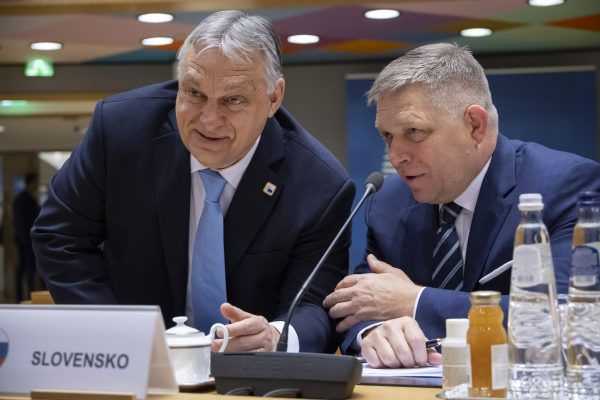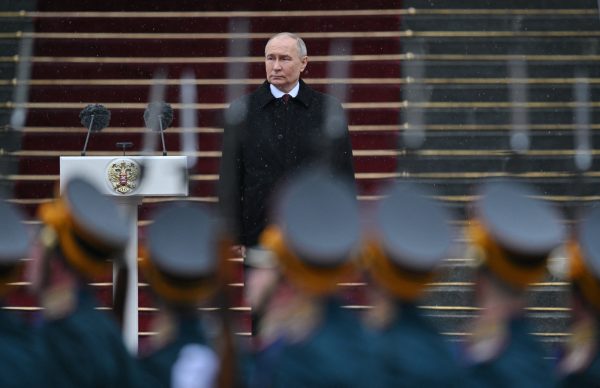European capitals and Washington DC are filled with representatives of all kinds from the Russian opposition, real and fake, most of whom trade on the idea of a post-Putin free country.
They are the latest of many waves of emigres who, decade after decade, died in exile without seeing the imagined rise of a new Russia.
The country experienced five waves of emigration in the past century. The first (1917-1920) is called the “white immigration,” when the nobility, intelligentsia, and white anti-Bolshevik movement were escaping after defeat in the Civil War. Russian earls became taxi drivers in Paris, and countesses ended up as housekeepers at best.
Hardly any lived long enough to see communism fall.
The second wave in the 1940s was predominantly made up of prisoners of war and others refusing to return to a grim fate in Stalin’s Russia. The Soviets viewed both groups as traitors. The third, between 1960 and 1990, included many cultural figures and thinkers who disagreed with the Soviet regime, as well as members of the Jewish community who experienced antisemitism.
Nureyev, Solzhenitsyn, Dovlatov, and Brodsky were prominent representatives of this wave. Some witnessed the fall of the Soviet Union, and some even returned, but many recognized that after 1991, while Russia may have been freed from communism, it was not freed from itself.
The fourth wave of immigration during the 1990s to 2000s was predominantly driven by economic challenges, the opportunity to reunite with relatives who had immigrated earlier, and the pursuit of the dream of finding happiness elsewhere. Russian liberalization, at least concluded, would not change its nature.
Then, less than 30 years after the collapse of the Soviet Union, when some still imagined that Russia might become the promised land, Stalin-style political repression and the fear of dying on the battlefield caused another massive outflow, amid the restoration of oppressive mechanisms especially after the full-fledged invasion of Ukraine. Human Rights Watch called the repression of the early 2020s an all-out drive to eradicate public dissent.
Times may change, but not Russia.
Many nations have a mythic glorious past, which usually does not withstand scrutiny. The history of the Russian Empire, and especially the Soviet Union, reveals oppression and a lack of freedom as the foundations of the state. Good never prevailed over evil, and even Yeltsin’s time can hardly be called a true democracy.
The current regime can reasonably be regarded as a successor to Soviet-era repression that has augmented the KGB toolkit with post-communist opportunities for limitless enrichment. In this system, according to the US academic Andrew Wedeman there is “near-total impunity for those authorized to loot by the thief-in-chief” [Putin].
Although there are many cases of states falling in and out of democracy, and no nation has a genetic inclination towards certain systems, an analysis of Russia should not fall victim to wishful thinking.
It remains a nuclear power with a wealth of resources available for appropriation by its elites, a massive repressive apparatus, strong imperialist and revanchist inclinations, a weak civil society, no opposition, and little experience of democracy.
Undefeated militarily or economically, it has no motivation or means for internal change. Even if the financial interests of its elites push them to re-establish relationships with the West, it is hard to imagine Russia undergoing in-depth reforms even in exchange for reduced sanctions.
Primarily this is due to the formidable influence held by its security and intelligence services. At its core, Russia operates more as a security service with a state attached. The state, after all, is heavily composed of so-called siloviki, the security forces, whose membership some estimate at five million.
Meanwhile, Russian society — as noted by Oleksii Danilov, Secretary of Ukraine’s National Security and Defence Council, is ossified. Putin’s death is not enough to bring about any changes in Russia. “It will take years. First and foremost, they have to start loving people.”
Ukrainians, who went through three revolutions on their 30-year path to democracy, know very well what it takes to build and protect a democratic system. The need for changes in mentality, institutional reform, and human courage is massive.
The idea there could be an easy process to turn Putin’s now-fascist Russia into a Western ally that respects human rights and frees political prisoners is delusional.
Russia continues to nurture its global power ambitions and, while it is unable to fulfill them now, it will keep trying. A report by the German Council on Foreign Relations predicts Russia will be ready to attack NATO within six to ten years after a possible Ukrainian defeat. In alliance with China and Iran, Russia seeks to become a proud leader of the unfree world.
As a Ukrainian who prefers to have civilized and peace-loving neighbors, I wish the dreams of the new Russian dissidents would come true. But as a Ukrainian who has experience in democracy development, I fear the majority will grow old in exile dreaming of a Motherland that never wanted them in the first place.
That does not mean they should stop dreaming of the vision encapsulated in Chekhov’s Uncle Vanya: “We shall find peace. We shall hear angels, we shall see the sky sparkling with diamonds.”
It just won’t come any time soon.
Elena Davlikanova is a Democracy Fellow with the Center for European Policy Analysis (CEPA.) She is an experienced researcher and in 2022 was co-author of ‘The Work of the Ukrainian Parliament in Wartime’ and ‘The War of Narratives: The Image of Ukraine in Media.’
Europe’s Edge is CEPA’s online journal covering critical topics on the foreign policy docket across Europe and North America. All opinions are those of the author and do not necessarily represent the position or views of the institutions they represent or the Center for European Policy Analysis.





